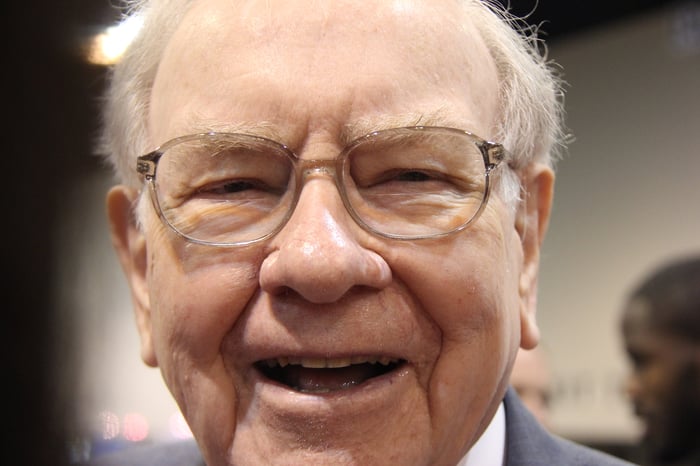Berkshire Hathaway's Most Important Business Just Had a Great Year. Here's Why You Shouldn't Get Used to It.
-
Berkshire Hathaway gets lumped into the finance sector, despite the sprawling nature of the conglomerate's portfolio.
-
While finance isn't a perfect fit, it makes some sense given the large size of the company's insurance operations.
-
Insurance had a good year in 2024, powering Berkshire Hathaway's financial results.
Berkshire Hathaway (BRK.A -6.74%) (BRK.B -6.89%) is a difficult company to understand. There's nothing about the individual businesses within the conglomerate that's all that difficult to wrap one's head around. The problem is that there are so many different business lines under the Berkshire umbrella. That said, the company's most important business had a great year in 2024. But don't get used to it.
What does Berkshire Hathaway do?
As noted, Berkshire Hathaway is a conglomerate. So it doesn't just do one thing, it does many things. Usually conglomerates have a few related businesses under one corporate umbrella. Berkshire Hathaway's portfolio is massively diverse. It includes electric utilities, trains, energy pipelines, paint, home building, various retail establishments, various manufacturers, and insurance. That's not even an exhaustive list.

Image source: The Motley Fool.
The reason for the eclectic portfolio of businesses is Warren Buffett, the company's CEO. At his core, he is a stock investor, trained by Wall Street icons like Benjamin Graham. This drastically changes the way he looks at building Berkshire Hathaway and turns it into something more like a mutual fund than a traditional company. When you buy Berkshire Hathaway, you're really just investing alongside Buffett and his team.
Warren Buffett's investment approach is to, roughly speaking, buy when good companies are attractively priced and then hold them "forever." This allows Buffett and his shareholders to benefit from the growth of the businesses over time. Given the long-term nature of his model, it makes complete sense that Buffett would buy whole businesses. The foundation of his investment approach, however, is the insurance business.
Buffett is putting the float to work
Insurance companies take in money in the form of premiums and only pay out money at a later date when something "bad" happens, triggering a payment. For example, the Geico business collects money up front, but only pays out if one of its insured drivers gets into an accident. This is where things get interesting for insurance companies, because they can invest that cash while they're waiting for a claim. Buffett uses the float, as that cash is called, to support the larger company's investment approach.
In Buffett's 2024 annual shareholder letter, he explained: "In 2024, Berkshire did better than I expected though 53% of our 189 operating businesses reported a decline in earnings." Yet the company still managed to have a pretty good year, with operating earnings rising from $37.35 billion in 2023 to $47.44 billion in 2024.
That outcome was made possible by a material uptick in Berkshire Hathaway's insurance business. The company's insurance-underwriting operating earnings rose from $5.4 billion in 2023 to $9 billion in 2024. The insurance-investment income jumped from about $9.6 billion to nearly $13.7 billion. There were puts and takes throughout the rest of the business, but those were the big gains that drove the company's performance.
The problem with this is that the results from insurance-underwriting and insurance-investment income can change dramatically from year to year. Sometimes the numbers go the "wrong way." For example, in 2022, insurance-underwriting lost $30 million. Years with big claims can be like that. And in 2021, this business line only produced $728 million in operating earnings. Insurance-investment income tends to be a bit more stable, but it, too, can vary by billions of dollars a year depending on what is happening on Wall Street and within the economy. In 2021, this line item generated $4.8 billion in operating earnings and $6.5 billion the very next year.
Berkshire Hathaway's financial results are hard to predict
So, in some ways, Berkshire Hathaway had a very good year in 2024. But given the influence of the insurance business, investors shouldn't get used to that -- it could change quickly. Add in the fact that more than half of the operating businesses under the Berkshire umbrella saw a downturn in their results, and maybe 2024 wasn't as good a year as it first seemed.
This isn't meant to be a knock on Berkshire Hathaway or Warren Buffett. The CEO has clearly created a company that has rewarded investors well for owning it. However, it highlights the fact that Berkshire Hathaway isn't your typical company. It also points out that most people buying it should view owning Berkshire as more like owning a mutual fund than a business.
免责声明:投资有风险,本文并非投资建议,以上内容不应被视为任何金融产品的购买或出售要约、建议或邀请,作者或其他用户的任何相关讨论、评论或帖子也不应被视为此类内容。本文仅供一般参考,不考虑您的个人投资目标、财务状况或需求。TTM对信息的准确性和完整性不承担任何责任或保证,投资者应自行研究并在投资前寻求专业建议。
热议股票
- 1
- 2
- 3
- 4
- 5
- 6
- 7
- 8
- 9
- 10